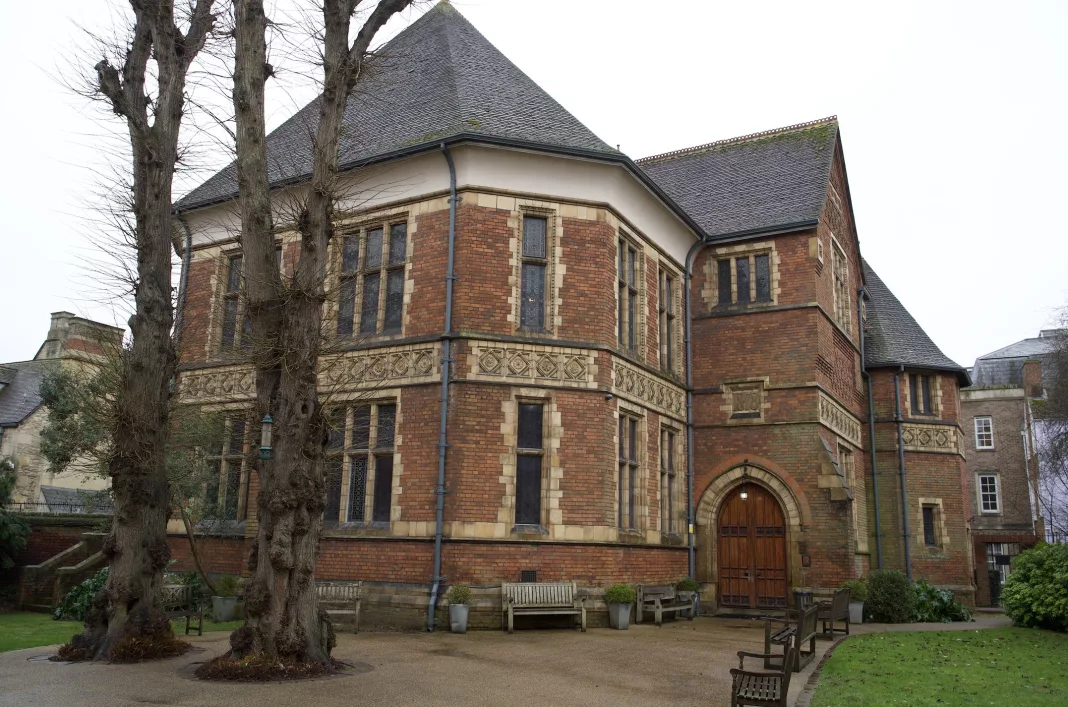At Saturday night’s intervarsity debate against the Cambridge Union, members voted in favour of the motion “This House believes money can buy you happiness” – a debate that saw plenty of roasts fired by both sides at the opposite society. The final count had 130 members voting for the motion and 81 members voting against.
Earlier in the evening, the chamber also voted against the emergency motion “This House would date someone from ‘the other place’” following light-hearted debate. Arguments in proposition included diversifying networking portfolio, having an excuse to go to London clubs, and avoiding awkward encounters with an ex. Arguments in opposition include the horrors of Milton Keynes, disputes over the future child’s university, “bestiality is wrong,” and the lack of hacking utility since Cambridge students cannot vote in Oxford Union elections.
Opening the proposition side was Oxford Union Librarian Elect Louis Wilson (Christ Church), who introduced the opposing Cambridge Union President Nick Davis as their “first president to have undergone Personality Removal Surgery” before introducing Cambridge’s Elected Equalities Officer Jessica Spearman and Debates Officer Elect Felix Esche. The other opposition speakers included Oxford’s Secretary’s Committee member Yassin Hachi (Trinity) and Consultative Committee Chair Sarp Ozdemir (St. Hilda’s).
Wilson began his speech with a dig at Cambridge Union’s membership prices, arguing that “unless you have the money to afford it, you cannot indulge in the happiness they provide.” He then joked that money can buy friendships, illustrated by Union hacks’ relationships “built on the foundation of coffees” bought by money. In a cautionary conclusion, Wilson stated: “For good or for bad, the amount of money you have is the single most important determinant of your life’s outcomes and thereby your happiness.”
Opening the opposition, Esche cited an Oxford study that showed happiness increases with income only until a certain point, after which there are diminishing returns. He explained this was because money brings “not intrinsic happiness but the avoidance of discomfort and difficult choices.” He points out that capitalism as a system does not have happiness as its aim.
In a point of information, Oxford Union President Hannah Edwards joked “if I have enough money, I would buy the Cambridge Union and burn it down – that would make me very happy” with Esche retorting that if he had that much money he would first solve “the problem of [her] own Union falling down.”
Speaking second for the proposition, Hachi cited the 8% increase in rent prices at King’s College, Cambridge and the resulting unhappiness. He also mocked the disrepair of the Oxford Union chamber roof, arguing that money can buy “a sense of security – especially a roof over your head.”
Opposition’s second speaker Spearman defined happiness through Bentham and Mill’s utilitarianism and drew on her working class background to argue that the comfort money provides is stability, but not happiness. “Having your needs met should not be happiness,” she said, but rather “a fundamental part of life.” Spearman cited the stories of lotteries ruining winners’ lives and compared the endless cycles of work in pursuit of money to “a hamster wheel.”
Closing the proposition debate, Ozdemir drew attention to the wealth of Cambridge Union’s ex-Vice President Lord Karan Bilimoria, who was implicated in the Panama Papers. He listed the daily routine of an Oxford student while ringing a bell repeatedly – once for every time the task required money. Citing a Cambridge research that money can indeed buy happiness, he said that it is “unrealistic at worst and foolish at best” to assume happiness can be achieved without money.


